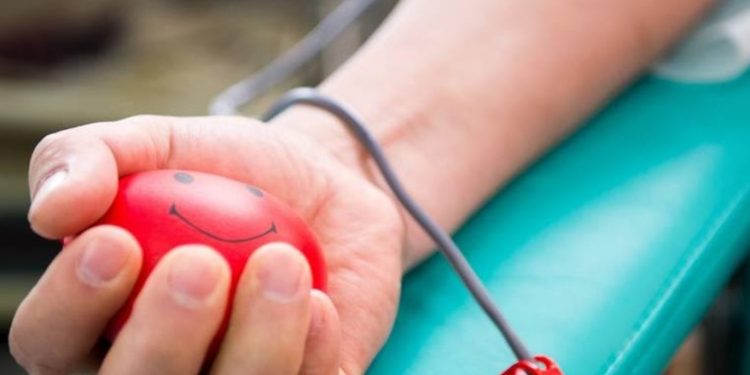Bhubaneswar: The outbreak of Covid-19 pandemic across the state and subsequent lockdowns and shutdowns seem to have taken a toll on the overall blood donation drives across the state.
Several blood banks in the state saw a sharp decline in blood collection during the pandemic, making the health system vulnerable. Owing to the restrictions, the blood donation drives and overall functioning of the centres suffered a jolt.
Officials from the Central Red Cross Blood Bank, Cuttack, one of the largest blood banks of Odisha that used to collect upto 150 units of blood per day during the pre-Covid days is now struggling to get even 50 units of blood per day. However through special camps, the centre has been trying to ensure timely collections.
“Although the collections are down due to Covid, we have been roping in special blood collection drives to regularly collect blood for our blood bank,” Dr Chandrika Das, Director, Central Red Cross Blood Bank, Cuttack said.
The blood bank at Capital Hospital, which caters to the areas upto 100 kms away from the city, also suffered a setback due to the pandemic. The centre also caters to the needs of other districts far away from the state capital in case of rare blood groups like AB group.
Dr Debasish Mishra, in-charge of Capital Hospital blood bank attributed lesser collections to the closure of educational institutions. “Like several other sectors, blood donations also got affected due to Covid-19. Educational institutions had been our prime source of blood donations but as they remained closed we focused on local clubs and other voluntary donors to keep the drive going,” he said.
Dr Mishra meanwhile urged the people to come in good numbers to donate blood which he claimed can save upto three lives. “A single unit of blood can save lives of three patients. The donated blood is used in treatment of patients of cancer, burn, thalessemia and others. Blood is the only live thing from a human body that can be donated while the donor is alive and thus its donation must be encouraged,” he said.
The blood banks in the state meanwhile claim that they screen the donated blood against diseases like HIV, Hepatitis B and Hepatitis C before administering it to other patients through techniques like NAT-PCR and other robust means.
However, till now the NAT-PCR technique is available only in Capital Hospital, MKCG Medical College (Berhampur), VIMSAR (Burla) and SCB Medical College (Cuttack).
Meanwhile there are many patients who regularly need blood transfusions for their survival or better quality of lives like patients of Thalessemia. Experts claim that centres where mandatory NAT-PCR is done for the blood samples are safer than others.
“There are several sets of people like Thalessemia patients who require regular blood transfusions. For them and for others also the receipt of safe blood from centres undertaking mandatory NAT-PCR tests give an added advantage as it can detect fatal infections like HIV in initial stages of infection,” said Dr CR Prasad, head of department of transfusion medicine, VIMSAR, Burla.
However owing to the high cost of the machine, several blood banks are still deprived of this or dependent on the NAT-PCR machines setup in different medical colleges.
PNN






































